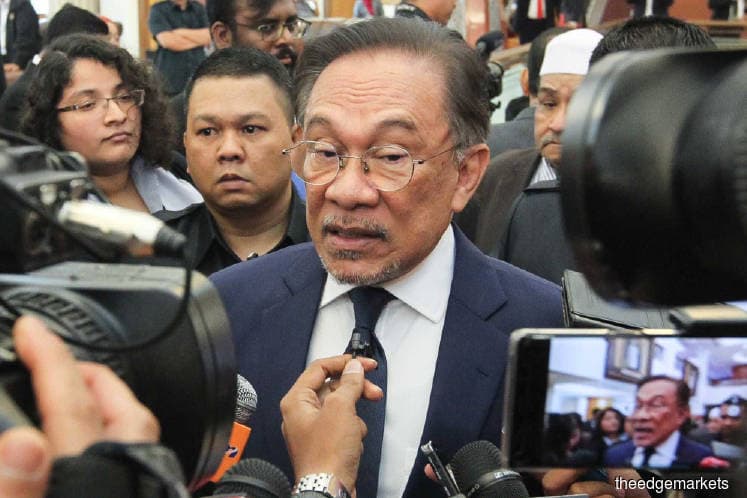
This article first appeared in The Edge Malaysia Weekly on April 6, 2020 - April 12, 2020
As I write this, the government has given permission to non-governmental organisations (NGOs) to distribute food to the needy — their target communities — during the ongoing Movement Control Order period to contain the Covid-19 pandemic. This is according to a report by Free Malaysia Today quoting Women and Family Development Minister Datuk Seri Rina Harun.
This means the government’s order stopping NGOs from distributing aid directly to the needy has been rescinded.
One member of an NGO involved in the distribution of food to the poor and disabled has confirmed that they are now allowed to resume distribution with certain conditions attached.
For one, NGOs must inform the welfare department’s operations room in their respective states a day before distribution. The aid to be distributed must either be cooked food or fried items. Also, only two members of each NGO are allowed to carry out the distribution and they are to be accompanied by at least one member of either Rela or the Civil Defence Force.
The NGO personnel must also don masks, sanitise their hands, put on gloves and maintain social distancing when distributing items. That is all well and good.
I risk being accused of harping on an issue that has been settled, but I cannot help but wonder why the government did not come up with these conditions earlier on instead of issuing the ban order. If they had, they could have allowed NGOs to carry out the work that they have been doing all along.
Why wait for a distribution bottleneck to develop before having this change of heart? Understandably, the ban resulted in vocal appeals from not only NGOs and civil society groups but politicians as well.
Granted that when the government announced the ban, the decision was made based on advice from the Ministry of Health. And the intention was to protect the NGOs “as we are not sure whether the people the NGOs are sending aid to have been infected by the coronavirus”.
Therefore, the government wanted NGOs to send the items to government-supervised collection centres instead and the aid would then be distributed to the needy by Rela and the army.
The concern of the authorities for the health and well-being of NGO workers is very much appreciated. However, when the NGOs appealed the ban, the government seemed reluctant to listen and was adamant, although the NGOs presented logical arguments supporting their case.
The NGOs were worried that the government’s decision would lead to food wastage and delays in the distribution of aid to the needy. In fact, some NGOs alleged that there have been delays in the delivery of food to the needy. It is a given that the NGOs know where the vulnerable are as they have been helping them for ages.
It is a fact that when soup kitchens served their last meals following the ban, many of the vulnerable were worried where their next meal would come from.
The army and members of Rela are already having their hands full carrying out various duties in the current situation. So, too, the officers and staff of the welfare department. The question asked then was why the government should burden them further by asking them to carry out tasks that were already being efficiently undertaken by NGOs.
Even PKR president Datuk Seri Anwar Ibrahim weighed in, saying it was unreasonable to expect the welfare department to completely take over the distribution of all aid collected by NGOs.
“For example, let’s say one district has 10 officials. It is impossible to expect all 10 of them to handle distribution for everyone in their area,” Anwar was quoted as saying.
Moreover, the welfare department is ill-equipped to cope with the additional burden under the present circumstances. Many of us must have seen the video of an NGO volunteer who tried to deliver frozen food items donated by a well-known restaurant to the welfare department but who was told they did not have the capacity to receive the items.
The volunteer, William Cheah, ended up distributing tonnes of the food meant for the poor, which he had stored in a rented cold facility (paid for with his own money), to residents of the affluent neighbourhood of Kota Kemuning.
A group of civil society organisations and NGOs, in an open letter to the government, said NGOs do not exist to supersede the work of the government or to put the government in a bad light.
But it is hard, they said, to imagine that the government has a complete list of all vulnerable communities that need assistance and, thus, be able to take over serving the communities immediately.
As the group saw it, the very suggestion of over-centralisation shows poor planning and a poor understanding of the plight of the needy.
Save by subscribing to us for your print and/or digital copy.
P/S: The Edge is also available on Apple's AppStore and Androids' Google Play.